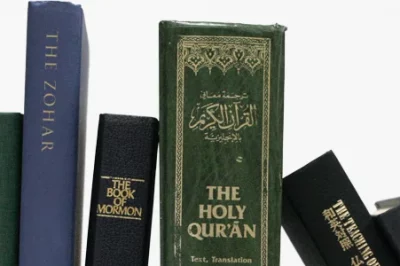A significant advancement has been made in the debate on protecting religious emotions and freedom of expression/speech. That is the recent legislative action in Denmark to make burning religious materials, including the Quran, an illegal act.
Denmark has approved a law aimed to address and prohibit the burning of religious texts in response to incidents involving such acts. A discussion among the public prompted worries about how such actions affect societal harmony and the right to free speech since the adoption of this new law.
Forbidding the burning of holy materials, this legislation plans to make the lawbreakers face severe consequences, i.e., fines or two years of prison. The ruling highlights a dedication to preserving unity in society and honoring a range of religious convictions and portrays the protocols for implementation. Any exceptions are detailed to guarantee a careful handling of particular circumstances.
Also Read: Pakistan commends Denmark’s anti-burning legislation to safeguard Divine Books
The legislatures contend that these actions are required to protect social harmony and stop inciting religious intolerance. Conversely, detractors voice worries about the suppression of free expression and the consequences for a free and democratic dialogue.
The impact of this legislation on Denmark’s political and social environment is a matter of much notion. Prohibiting behaviors that can incite religious conflict would promote a more accepting and tolerant community.
Unintended effects, such as a chilling impact on free speech or the formation of divisive arguments regarding the boundaries of governmental interference in matters of expression, are a concern, nevertheless.
The government of Denmark opting this new law has caused a stir on the global scene, drawing out a range of reactions from institutions, individuals, and countries. While some countries praise the legal action as a proactive response to religious intolerance, others voice concerns about the possible effects on the right to free speech.
In conclusion, Denmark’s introduction of this law shows the country’s commitment to preserving social peace and defending basic democratic principles. However, the harsh relationship between religious tolerance and freedom of speech calls for constant consideration. Denmark’s handling of the fallout from this judgment can be used as a model for other countries facing such issues.
An International Relations graduate, with a keen interest in diverse areas of IR; diplomacy, global politics & human rights.









One response
Good Writeup
Keep it up